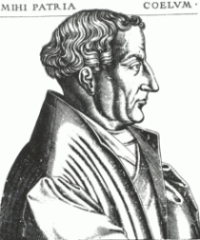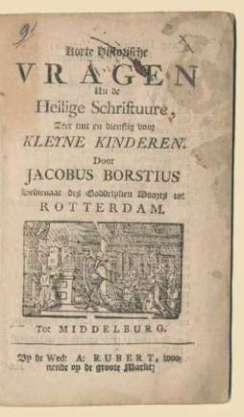
The following prayer of a pastor for himself and his ministry is attributed to Samuel Hieron (bap. 1572-1617), fellow of King’s College, Cambridge, and afterwards vicar of Modbury, Devon (parish church of St George, Modbury, pictured):
Holy, O Lord, and honourable is that service, to which it hath been thy gracious pleasure to depute me. The matter I am chiefly to be busied in, is thine own counsel; they be thy oracles, and the seals of righteousness, the dispensation whereof thou hast committed to me. Thou hast made me an overseer of a part of that flock, which thou didst purchase with thine own most precious blood; thou hast called me to be a messenger, and an interpreter, to declare unto men thy righteousness, to watch for their souls, among them to declare thy secrets, and to pray them even in Christ’s stead, to be reconciled unto thee.
What man among all the sons of Adam, is worthy of this honour? And who is sufficient for these things? When as, oh most merciful Father, I think upon the weight of that charge which thou hast put upon me, and consider again mine own weakness and insufficiency, who am a man of polluted lips, and even as a child unable to speak the secret of thy Gospel as becometh me; methinks I may well cry out with the prophet, Woe is me, I am even undone; how shall I stand upright under such a burden?
But when I look back into my own conscience, and find there a comfortable witness, that I have not thrust in myself for a pastor, and remember also what is registered in the Word, how thou makest thy power perfect in weakness, and choosest the feeble things of the world for weighty purposes, it is a kind of enlivening to my spirits, and refreshing to my discouraged and drooping thoughts, I am thereby emboldened to press nearer to thy throne of grace.
Oh thou who both callest whom thou pleasest, and makest those able whom thou callest; be merciful unto me (even with the strength and intention of my desires I most humbly pray thee) make my heart a very treasury of saving knowledge, fill it with soundness of judgment and a large measure of spiritual understanding, that my whole drift may be to fulfil that ministry which I have received. Let my lips preserve knowledge, that many may be fed thereby, and give me a door of utterance, that I may open my mouth boldly, as I ought to speak, and both shew thy people their sins, and be able to minister a word in due season to him that is weary.
In my preaching vouchsafe me both diligence and humility. Diligence; that I may still be instant, never fainting in my mind for the small success of my labours, or for those storms which Satan raiseth up against the faithful in dispensing of thy truth: and humility, that I may not seek mine own glory and applause with men, but the bringing in sheaves into thy garner, and the gathering of saints into thy fold. And for this cause teach me to take heed of the affectation of words, and of seeking to abound with the enticing speech of man’s wisdom, choosing rather by the plain evidence of the Spirit to approve myself to men’s consciences in thy sight, than by a vain blast of words to gain an opinion of eloquence and learning before men.
And for the better furtherance of this great work, make me careful to know the state of my flock, and to hearken after their courses, to observe their carriage and opinions, and to find their especial sins, that so my speeches may be as words in season, even like apples of gold in pictures of silver.
Make me wise in judging, skilful in separating the precious from the vile; bold, but yet pitiful and compassionate: in reproving resolute, especially in those things which are fit to be urged; and far from yielding in the smallest things which may strengthen them in evil, and be a stop in their speedy reformation.
Let it be even my whole business to seek that which is lost, and to study how to bring those out of the snares of the Devil which are taken by him at his will.
Make my face strong, and my forehead as the adamant against their faces which shall either scorn or withstand thy truth; let me make ready my back for the smiters, and not hide my face from shame and spitting; no nor to account even of life itself, so that I may finish my course with joy; and the ministry which I have received of the Lord Jesus, to testify the Gospel of thy grace.
Frame me to diligence and painfulness in my private employments, in reading, in study, in meditation and prayer, that I may be a workman not needing to be ashamed, and that men may see how I go on, and profit in my calling.
Let my life be a pattern of holiness to my flock; let there be no fighting betwixt my behavior and my doctrine, but that my very course and carriage, and ordinary speeches may savour of grace, that so I may give no offence, either to those that depend upon me, or to those who desire to have some occasion and matter of reproach.
Make me circumspect in my family, overseeing the ways of my household, knowing how many eyes are upon me and mine; and how soon by Satan’s teaching men will make the worst of every little trespass. And because, oh Lord, the businesses of this world are a great withdrawment, and the pretence of caring for posterity, doth kill the zeal of many, and lead them into doolish and noisome lusts; therefore, I beseech thee, suppress within me all earthly-mindedness; keep me from entangling myself with the affairs of this world; let it be enough for me that I have a nail in the holy place, and a room among the servitours of thy Church.
As for those which belong unto me, let me neither be without care; for that were worse than infidelity, nor yet so taken up, that I should forget my chiefest business; but let me assure myself, that thou wilt be my God, and the God of my seed, and wilt not leave them destitute of earthly blessings, for whom thou hast provided an eternal inheritance. With this hope make me to go on with cheerfulness; doing that whereto thou hast called me, and leaving thee to provide and care for the rest. Thou oh Lord knowest the desires of my soul, thou best understandest what things are fittest for me, in respect of that great calling to which thou hast ordained me, and what I most stand in need of: Supply me I beseech thee out of thy fulness, and crown my labours in the ministry with the conversion of such souls as are ordained unto life; and that for the Son’s sake, who is the chief Shepherd, to whom let my soul and spirit give honour, glory, and praise, now and forever. Amen.









